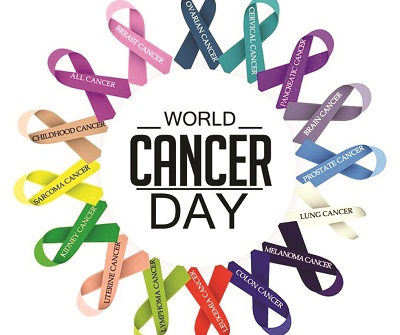By:Mpho Shelile
World Cancer Day is an annual event that takes place on February 4th. It serves as a reminder of the ongoing battle against cancer and highlights the importance of raising awareness, promoting prevention, and providing support to those affected by the disease. In 2024, amidst global health challenges, the significance of this day has only grown as communities worldwide come together to address the impact of cancer.
According to CNN news, this is also the day when the world lost one of its giants, the Namibian President Hage Geingob who died at the age of 82 at a hospital in the capital Windhoek, where he was receiving medical treatment and fighting cancer, according to a statement from Acting President Nangolo Mbumba.
The WHO Regional Director for Africa, Dr Matshidiso Moeti In August 2023, stated that she had attended a cervical cancer meeting with survivors and was excited by the prospects of new tools to accelerate access to vaccination, screening, and treatment. One of the things survivors said was the need for leaders to listen to their stories.
In the years 2022 to 2024, the focus of World Cancer Day is to help “Close the cancer gap.” This year marks the third and final year of the campaign.
The observance of World Cancer Day provides a platform to educate individuals about the various types of cancers, the risk factors, and the importance of early detection and treatment. Through educational campaigns, events, and media coverage, organizations and individuals aim to debunk myths surrounding Cancer and empower people with knowledge to make informed decisions about their health.
The theme for this year is “Together, we challenge those in power”. This theme encompasses the global demand for leaders to prioritize and invest in cancer prevention and care and to do more to achieve a just and cancer-free world. The cancer situation in Africa is disheartening, this theme also pleads with those in power to go the extra mile for a cancer-free Africa.
WHO’s statement regarding the global increase in cancer cases is concerning. It is alarming to hear that the number of new cancer cases is expected to reach 35 million by 2050, which is a 77 percent increase from the figures in 2022. The organization’s report highlights that there was an estimated 20 million new cancer cases and 9.7 million deaths in 2022, and this number is projected to grow significantly in the coming years. It is essential to take proactive measures to address this growing health concern and find ways to prevent, diagnose, and treat cancer effectively.
The new disease estimates, WHO said, were based on a survey conducted by its cancer arm – the International Agency for Research on Cancer (IARC) – linking the development to certain factors.
“The rapidly growing global cancer burden reflects both population aging and growth, as well as changes to people’s exposure to risk factors, several of which are associated with socioeconomic development. Tobacco, alcohol, and obesity are key factors behind the increasing incidents of cancer, with air pollution still a key driver of environmental risk factors,” the research findings reflect.
Dr. Matshidiso Moeti also states that leaders are responsible for ensuring that cancer prevention and care deploy technologies and therapies that are available at low costs to affected persons and their families, which are value for money. Furthermore, countries should strengthen information systems to gather quality data for decision-making purposes.
Adding that prevention is an important aspect of the battle against cancer. To reduce the risk of developing cancer, it is crucial to encourage healthy lifestyle choices such as maintaining a balanced diet, regular exercise, avoiding tobacco and excessive alcohol consumption, and practicing sun safety. Vaccination against viruses like human papillomavirus (HPV) and hepatitis B, which are linked to certain cancers, is also a vital component of prevention strategies.
Collaboration on a global scale is essential in addressing the multifaceted challenges posed by cancer. Through partnerships between governments, healthcare organizations, research institutions, and advocacy groups, efforts to improve cancer prevention, diagnosis, treatment, and palliative care are amplified. By sharing knowledge, resources, and best practices, the global community can work towards reducing the burden of cancer and achieving better outcomes for all.
World Cancer Day also serves as a poignant reminder of the collective effort required to combat cancer effectively. As we reflect on the progress made and the challenges that lie ahead, let us renew our commitment to raising awareness, supporting prevention efforts, advancing treatment modalities, and providing compassionate care to all those affected by cancer. Together, we can make a difference in the fight against cancer and strive toward a future where cancer is no longer a pervasive threat to global health and well-being.
This year’s theme is auspicious as it reinforces all persons and groups’ universal right to health. We believe that regardless of socioeconomic status, geographic location, age, and gender, every person must be afforded an equal chance of prevention, diagnosis, and treatment of cancer.


